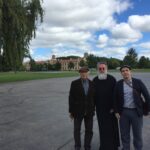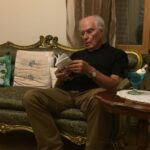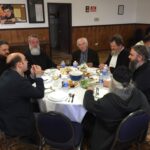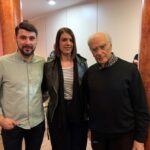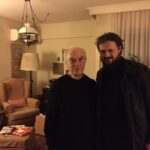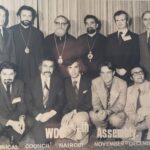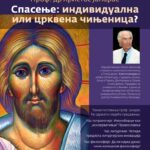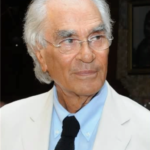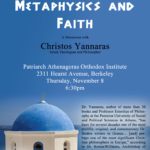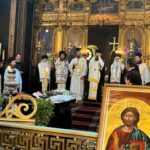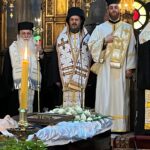In Memoriam: Christos Yannaras – A Transformative Voice in Modern Orthodox Theology
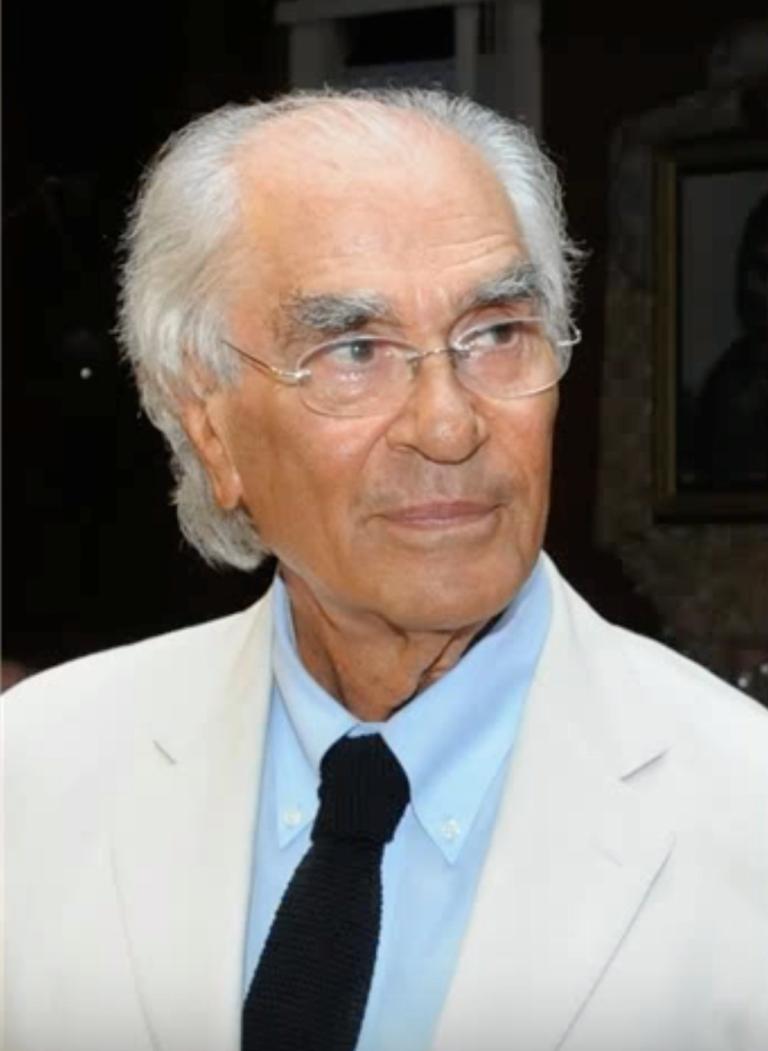 In Memoriam: Christos Yannaras – A Transformative Voice in Modern Orthodox Theology
In Memoriam: Christos Yannaras – A Transformative Voice in Modern Orthodox Theology
Bishop Maxim Vasiljevic
“How can you lay hold of the topmost branches with fingers of clay? The ascent to love resembles а labor of Sisyphus. Yet we exist only as creatures crawling up а trunk to attain heights we cannot grasp. Only by desire which constitutes us as personal existence.”
(Christos Yannaras, Commentary on the Song of Songs).
On August 24th, 2024, the world lost one of its most revered Orthodox theologians and philosophers, Christos Yannaras, who passed away on the island of Kithira at the age of 89. His funeral took place on Thursday, August 29th, in the Church of St. Irini in Athens. Many distinguished figures attended the solemn ceremony, including the Archbishop of Athens and other prominent hierarchs. Bishop Maxim of Los Angeles represented the Serbian Orthodox Church among them.
Born in Athens in 1935, Yannaras studied theology at the University of Athens before pursuing philosophy at the University of Bonn and later at the Sorbonne, where he was exposed to the progressive currents of the time.
Yannaras significantly reshaped Greece’s theological landscape, bridging the gap between theology and broader cultural fields like literature, philosophy, and other sciences. His extensive body of work stands as a testament to his influence, far surpassing what many academic groups have collectively achieved. Yannaras was a key figure in challenging and critiquing the established theology, pioneering the dialogue between Orthodoxy and modern challenges, and addressing the narrowness of ethnocentric ecclesiastical thought, while emphasizing the global nature of Orthodoxy.
According to Stavros Zoumboulakis, “theological thought in Greece from 1960 to the present is unimaginable without the work of Christos Yannaras. He is our theologian. He introduced themes, ideas, methods, language, and terminology. Many younger theologians have spoken and continue to speak using his words. In my opinion, there are two main contributions he made, starting from the 1960s.”
Yannaras’s books, such as Elements of Faith, Refuge of Ideas, The Person and Eros, etc., had a significant influence not only on intellectuals but also on those without any prior connection to the Church or its traditions.
He introduced innovative theological and cultural ideas that challenged traditional views, particularly evident in the anthropological themes he explored. His role at the Panteion School as a Professor of Philosophy likely spurred him to foster communication between previously isolated groups, such as during the “Christian-Marxist dialogue” of the early 1980s.
The Church of St. Irini was filled to capacity as countless persons gathered to bid their final farewell to this distinguished intellectual. Christos Yannaras was not just a theologian; he was a transformative figure in Orthodox theology, with over 50 books and numerous public lectures that brought a refreshing and dynamic spirit to the field. He engaged in dialogue with a broad audience, reaching beyond the confines of the Church to speak to the modern world. Yannaras was instrumental in transforming the image of the theologian, moving away from the old-fashioned, moralistic, and often severe persona, and instead embracing a modern theology centered on love, creativity, and the significance of new life.
He pioneered the formation of groups of Orthodox theologians who embodied a neo-Orthodox spirit, making Orthodoxy a respected spiritual treasure even among atheists in contemporary society. Yannaras was known for opening the Orthodox faithful to a broader cultural experience, encouraging engagement with theater, cinema, literature, and classical and folk music. His work offered modern Greeks a true sense of cultivation and culture.
Characterized by his deep love for the liturgical ethos, Yannaras often chanted in services. His philosophical engagement with contemporary issues of thought and theology, combined with his unique and charming dress, speech, and behavior style, made him the most attractive and interactive modern theologian of our time.
By exploring concepts like the “ecstatic nature of the person,” “truth in relation,” “erotic self-transcendence,” and the “Eucharistic community,” Yannaras developed a sophisticated theological framework that aligned with his own philosophy and met the needs of the Church.
The impact of Christos Yannaras on Greek theological thought from the 1960s onwards is undeniable. He played a pivotal role in shaping the direction of theology in Greece. His influence can be seen in the themes, ideas, methods, language, and terminology he introduced, which many younger theologians continue to adopt. His contributions, particularly starting in the 1960s, are considered foundational to modern theological discourse in Greece.
Zoumboulakis stressed out that Yannaras, “along with John Zizioulas—who, however, wrote directly in English—took theology beyond Greek borders; his work was translated into many languages. His thought has many debatable aspects. Some have already been discussed, and others will hopefully be discussed calmly in the future (one of these was his extreme theological anti-Westernism).’”
Christos Yannaras was a cherished friend of Serbian theologians, a relationship that began in the 1960s when Bishop Atanasije introduced him to St. Justin of Ćelije. Of the younger Greek theologians, in addition to John Zizioulas, Fr. Justin also valued the prolific writer Christos Yannaras, whose books Atanasije sent him from Greece. His letter was full of genuine insight. “The young writer has rich spiritual material in him, which can later shine for the great benefit of the Orthodox world. … The gentle Lord has gifted him with inexhaustible wisdom of God.” The theologian and philosopher Christos Yannaras later referred to his brotherly love for, as he called them, holy men: Amfilohije Radovic and Atanasije Jevtic. He said that on one occasion in the 1960s he went with them to visit Fr. Dimitri Gagastathis near Meteora, so they spent the night there. Since there were not enough beds in the house, Christos Yannaras shared the same bed with Risto Radović, later Amfilohije. Afterwards, they also visited the elder Aimilianos, then abbot of a monastery on Meteora. Atanasije described Yannaras as “a wonderful Greek theologian and philosopher, Professor of Philosophy at the Panteion University of Social and Political Sciences in Athens. He received his doctorate in theology and philosophy, but did not get a position at the Faculty of Theology due to envy and jealousy.”
Yannaras’ works were widely translated into Serbian and published by various publishing houses, playing a crucial role in awakening a theological renaissance among young students. Particularly during the 1990s and the first two decades of the 21st century, Yannaras’ theology and unique style profoundly shaped the education of these new generations. He was a beloved guest in many Serbian cities. He maintained a special relationship with the clergy and faithful of the Western American Diocese, primarily through his close ties with Bishop Maxim. Yannaras traveled extensively, delivering countless lectures during his visits, leaving a lasting impact on the Serbian Orthodox community.
The legacy he leaves behind is immense. Christos Yannaras shaped Orthodox theology for the modern world and enriched the lives of those who encountered his teachings, writings, and personal examples. His contributions will continue to influence and inspire generations to come.

